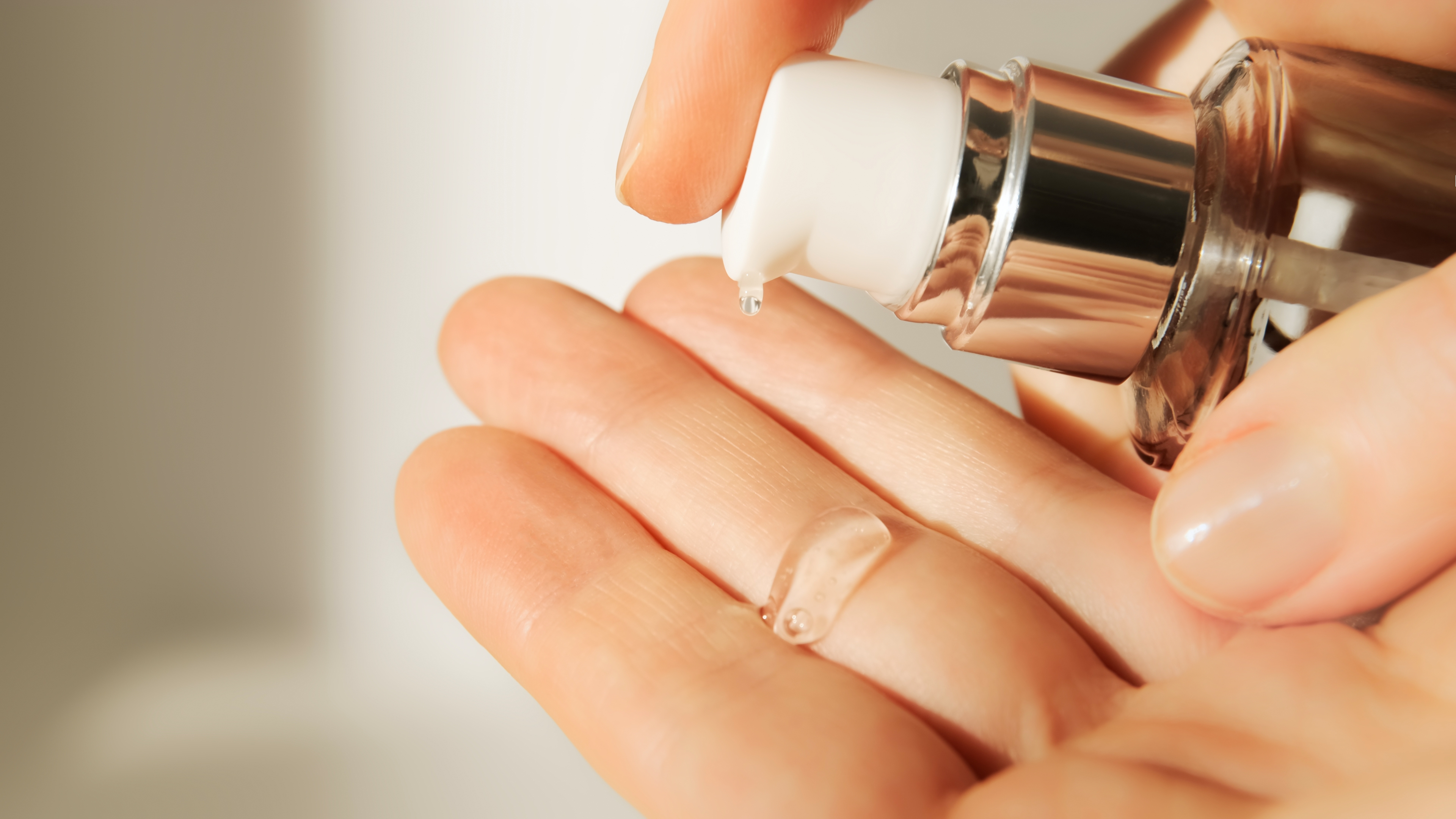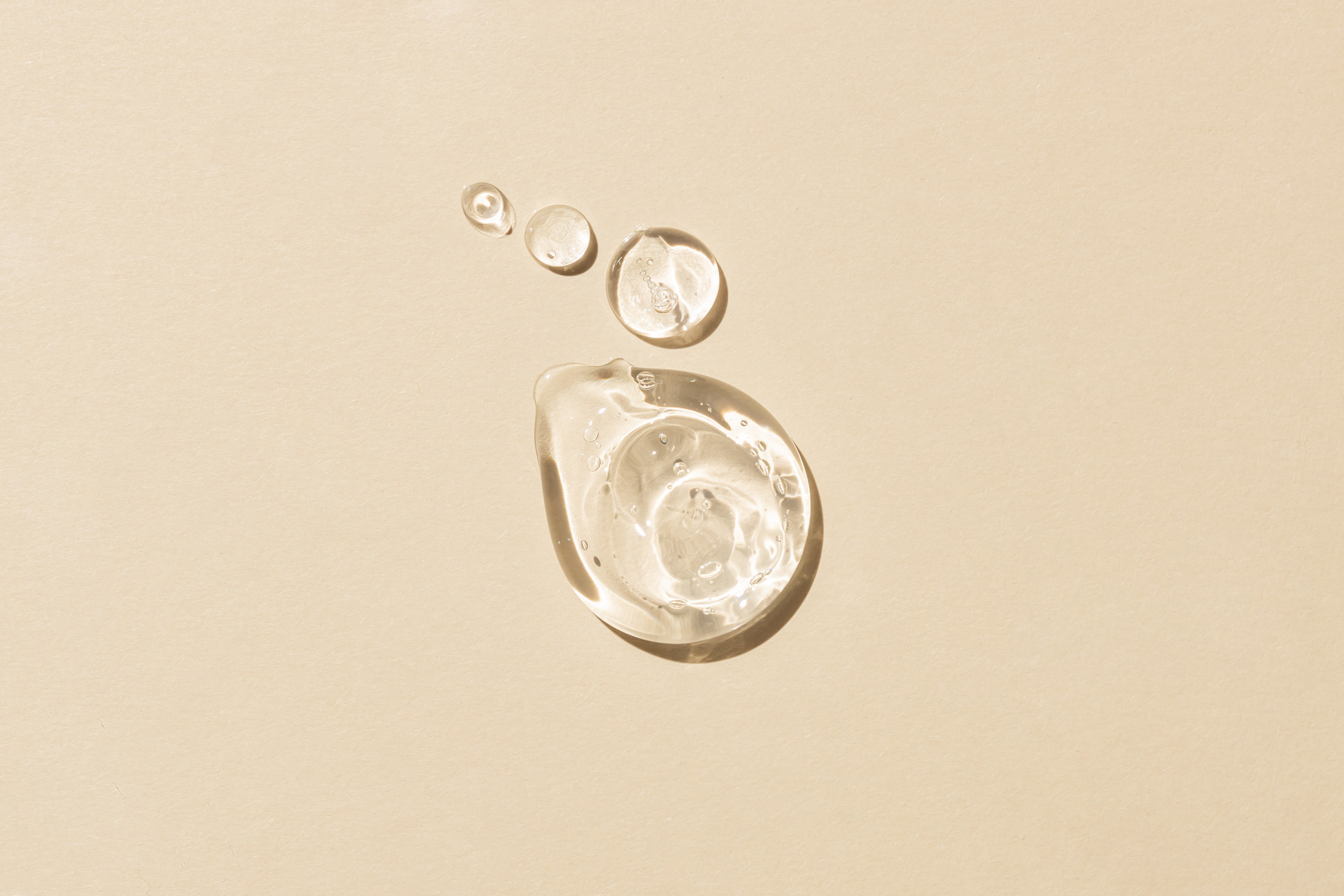It is discussed again and again whether glycerin has a negative effect on the skin and should be used in cosmetic products. Basically, in low concentrations, glycerin is harmless to the body and, as an ingredient, fulfills important tasks in care products.
This article shows how versatile glycerin can be used and in which concentrations it is harmless.
What is glycerin?
Glycerin is also known under the names glycerin or glycerol and is contained in many different cosmetic and cleaning products. The substance is an odorless and colorless sugar alcohol with a sweetish taste, which is produced, among other things, in the manufacture of soap from oils and fats. But glycerin is also found in our own body as part of the skin's own moisture retention system.
How is glycerin made?
Many products available on the market contain glycerin, which comes from animal oils. But the substance can also be obtained from plant products , such as vegetable fats such as palm oil or coconut oil. If glycerin is synthetically produced from petroleum, the so-called high-purity glycerin is produced, which is primarily used in the pharmaceutical and food industries.
Nowadays, glycerin, which is used in personal care products, shampoos and toothpaste, is mainly produced from rapeseed oil. Glycerine from such 100% vegetable sources is particularly recommended for cosmetic products.
In certified natural cosmetics, glycerine of plant origin from controlled organic cultivation is usually used - it is distilled, filtered and cleaned. Such high-quality glycerin is used in many products as a moisturizer, including products that help fight acne with hormones .
Glycerin in skin care
Glycerin is a skin-friendly moisturizer popular in the cosmetics industry for its multiple benefits. The moisturizing properties not only stabilize and strengthen the skin's protective barrier , but also improve the skin's elasticity . The substance penetrates deep into the horny layer and prevents harmful substances from getting into the skin.
By the way: Glycerin can also be used in face cream during pregnancy without hesitation. Since glycerin is an endogenous substance, it has no negative effects on the unborn child.
Glycerin in hair care
Glycerin is also used in shampoos and conditioners for its moisturizing properties. It can improve the moisture retention of the scalp and thus have a positive effect on symptoms such as dry dandruff, split ends and frizz. In addition, glycerin in shampoos can reduce the effect of irritating surfactants, which are used as foaming agents.
What is the role of glycerin in cosmetic products?
Glycerin is mainly used in products for dry skin . Due to its hydrating properties, glycerin is often found in moisturizing creams and cleansers, as well as in shampoos and shower gels.
As an important ingredient, glycerin is responsible for keeping the skin supple and preventing it from drying out . In addition, it can increase the elasticity of the skin and strengthen the skin's protective barrier . Care products, especially cleaning products, are therefore milder and gentler on the skin's natural protective acid layer.
In contrast to other moisture binders, glycerin can penetrate deep into the skin's horny layer and leave the skin feeling hydrated for a long time. Since glycerine not only ensures suppleness on the surface of the skin, it cannot be washed off so easily, and as a result the skin remains noticeably soft and soft for longer.
By the way : In addition to the caring properties of glycerin, as a humectant it also ensures that cosmetic products such as gels, creams and pastes do not dry out.

Are cosmetics with glycerin harmful?
It is discussed again and again whether glycerin in cosmetic products has negative effects on the skin. In fact, cosmetic products containing glycerin are not harmful to the skin. The corresponding products undergo a whole series of tests that ensure that the ingredients have no negative effects and that the limit values of the ingredients are not exceeded.
Glycerin is also an endogenous substance that plays an important role in the skin's natural moisture supply. This makes it practically impossible to have an intolerance to glycerin. The ingredient is highly skin-friendly and can also be used in care products for sensitive skin types without hesitation.

What effects does glycerin have on the skin?
So where do the negative opinions about glycerin come from? Even if the ingredient is used in many cosmetic products as a popular moisturizer, critics see a certain problem here: the moisture-binding effect of glycerin is not constant under all circumstances.
One thing is certain: glycerin stores moisture. However, in high concentrations, the substance glycerin can also have a drying effect on the skin. Especially in winter, when there is low humidity due to the dry heating air, glycerin can have the opposite effect. Instead of binding water from the air and keeping the skin moist, the moisture is extracted from the skin's own connective tissue . The skin can dry out from the inside and lose elasticity and resilience. The skin can also look less plump and tight.
It depends on the dose
But be careful: What initially sounds like the use of glycerin in cosmetics is questionable is actually due to the incorrect composition of the ingredients in the products and the climatic conditions. Preventing these negative effects of glycerin and benefiting from its hydrating properties is as simple as using the right dose .
The following applies: The glycerin content in care products must not be higher than 10% . In addition, the water content in the products should be high enough so that the glycerin does not even have the opportunity to bind moisture from the skin. It also makes sense to use other moisturizing ingredients such as urea.
In summary: Glycerine is by no means harmful in small amounts , but is considered the number one moisturizer. However, it should not be used undiluted. And the proportion in cosmetics should always be less than 10% in order not to run the risk of stripping moisture from the skin. From 30% glycerin content, the effect of the care additive is reversed and the ingredient has a drying effect on the skin. However, there is no need to worry - such a high concentration is not used in any cosmetic product.
Spotting too much glycerin in products
How can you tell if cosmetic products contain too much glycerin? In fact, it is usually not explicitly stated how high the glycerin content is in a care product. However, the INCI list can be used to check how much glycerin the product contains.
The following applies: The higher the glycerine is listed in the list of ingredients, the larger the proportion. Ideally, the glycerine only appears in the lower quarter of the ingredients - so the use is guaranteed to be harmless and no drying effect of the product is to be expected even in winter.
Tip : Glycerine as a care additive is not always recognizable as such at first glance. It is not uncommon in the list of ingredients under the names
-
glycerol
-
Glycerol
-
glycerol esters
-
propanetriol
-
E422
listed. Therefore, a close look should be taken at the label of a product to find out whether it contains glycerin or not.
FAQ
Is glycerin safe?
In the small amounts in which glycerin is used in cosmetic products, the ingredient is not harmful. On the contrary, it has a number of positive care properties. Glycerine stores moisture from the air and binds it deep in the horny layer. The skin can be sustainably moisturized and appears supple and plump.
What does glycerin do to the body?
Glycerin can help the skin retain moisture. This not only pads the skin and improves its elasticity, but also strengthens the skin's protective barrier over the long term. Both dry and aging skin benefit from the effects of glycerin.
Is glycerin in cosmetics harmful?
Glycerine is the number one moisturizer in cosmetic products and can help the skin to become more elastic and supple in the long term. In addition, the glycerine as a humectant ensures that cosmetic products do not dry out.
However, the prejudice that glycerin can harm the body has a core of truth. From a high concentration of over 30%, the glycerin can extract important moisture from the skin and thus dry out the skin. This is particularly relevant in winter when the skin is exposed to dry heating air. In fact, however, such a high glycerin content is not found in any cosmetic product.

Conclusion
Glycerin or glycerol has a bad reputation - wrongly so, in our opinion. In fact, as a care additive in cosmetic products, it even has several advantages:
-
It ensures that products such as creams, gels and pastes remain moist and do not dry out even after the packaging has been opened.
-
It supplies the skin with moisture, binds it deep in the horny layer and thus ensures a long-lasting improvement in skin elasticity.
-
Glycerine can strengthen the skin's own protective barrier and thus contribute to a better skin condition in the long term.
Soft, supple skin with glycerine - this is possible without hesitation, as long as the limit of 10% glycerine in the care products is not exceeded. If the composition of the ingredients is right, cosmetic products benefit from the body's own active ingredient and there is nothing to counteract the addition of glycerin.
Even if glycerin is not harmful to the skin in normal doses, care should always be taken to use cosmetics of the highest quality. This ensures that glycerin is obtained from high-quality sources and that the right concentration is present in the product.












Leave a comment
All comments are moderated before being published.
This site is protected by hCaptcha and the hCaptcha Privacy Policy and Terms of Service apply.